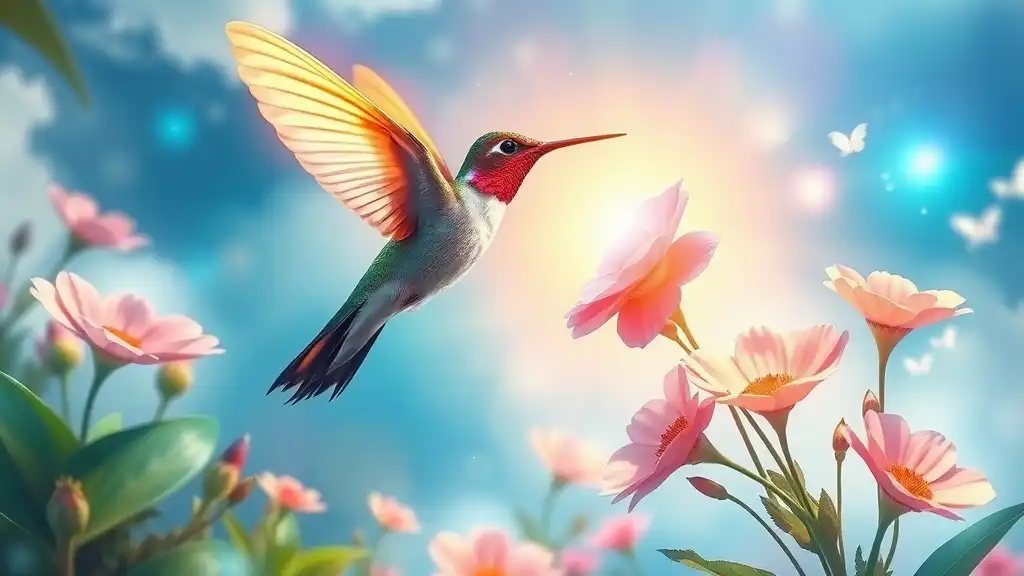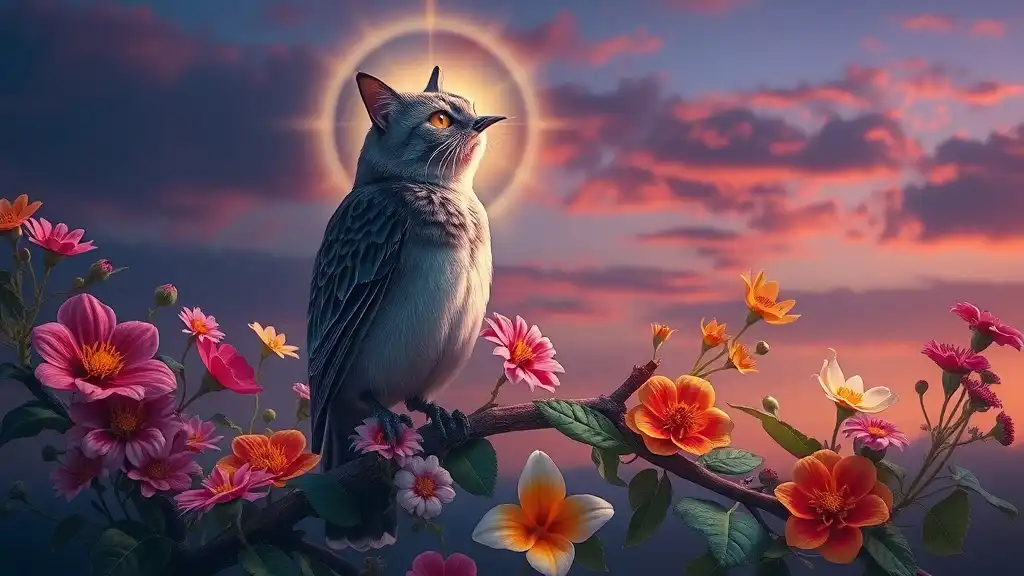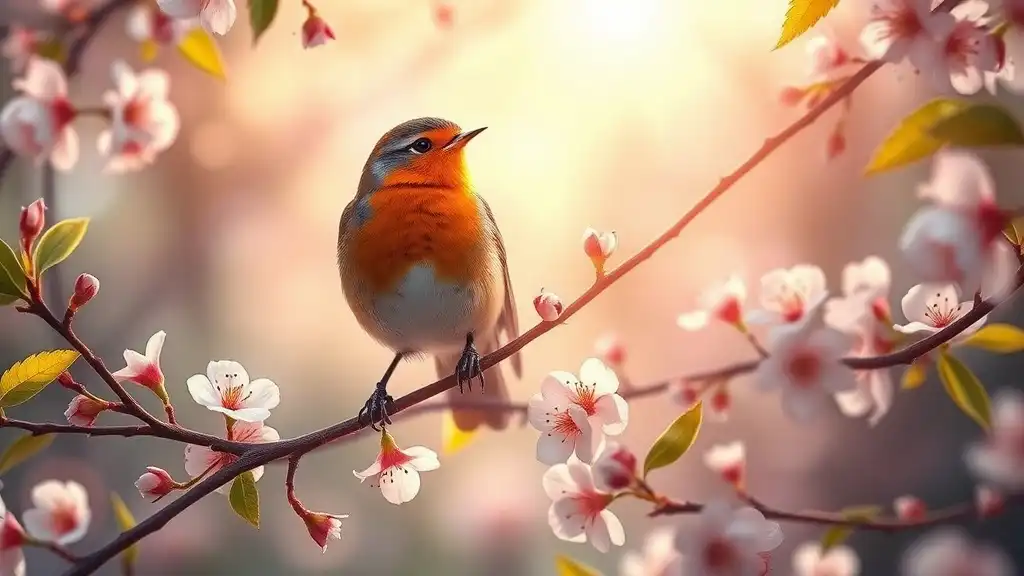The mockingbird is a fascinating and versatile bird known for its remarkable ability to replicate a wide array of sounds, including the calls of other birds, sounds from its environment, and even human-made noises. This unique trait has earned the mockingbird significant spiritual meaning across various cultures, where it often symbolizes communication, creativity, and adaptation. In this article, we will explore the spiritual meanings associated with the mockingbird, diving deep into its characteristics, symbolism, and ways to forge a connection with its energy.
Understanding the Mockingbird
Mockingbirds are small to medium-sized birds characterized by their grayish-brown feathers, bright white wingbars, and long tails. They possess a strong, melodious voice, which allows them to imitate the calls of more than 200 species. This vocal prowess not only serves as a means of attracting mates but also as an assertion of territory. Observing mockingbirds in their natural habitat reveals their social and quick-witted behavior, making them a delightful experience for birdwatchers and casual nature lovers alike.
The mockingbird's adaptability is another noteworthy trait. Found primarily in North America, they thrive in a variety of habitats, from urban landscapes to wild forests. This resilience makes them symbols of evolving and adjusting in the ever-changing circumstances of life.

Spiritual Symbolism of the Mockingbird
The mockingbird represents communication on multiple levels. It encourages individuals to find their voice and express their thoughts and emotions freely. In a world where many feel silenced or unheard, the mockingbird reminds us that our voices—and the stories we tell—are powerful and significant. In spiritual terms, embracing one's ability to communicate can lead to deeper connections with oneself and others, fostering understanding and empathy in our relationships.
Moreover, the mockingbird embodies the notion of mimicry and adaptation. Just as it expertly imitates various sounds, we too can learn the value of adaptability in our lives. This bird teaches us that change is not only natural but also essential for growth. By embracing new circumstances and experiences, we discover more about ourselves and become equipped to navigate life's challenges.

Cultural Significance of the Mockingbird
Native American Beliefs
In numerous Native American cultures, the mockingbird holds a revered place in mythology and folklore. It is often associated with the spirit of song, believed to carry messages from the Divine. Stories tell of the mockingbird as a guide, leading individuals to self-discovery through its songs. Some tribes interpret the mockingbird's imitative nature as a reflection of the interconnectedness of all beings, reminding us of the importance of learning from one another and honoring the wisdom of our ancestors.
Mockingbird in Literature and Mythology
The symbolism of the mockingbird extends into literature and mythology as well. Classic works, such as Harper Lee's To Kill a Mockingbird, highlight themes of innocence, moral integrity, and social justice. In these narratives, the mockingbird serves as a metaphor for the loss of innocence, compelling readers to ponder the implications of societal moralities and human empathy. The symbolic importance of imitating and mocking resonates through various cultures, emphasizing truth-telling and the need for authenticity in a world often filled with facades.

The Mockingbird in Dreams
Dreams featuring mockingbirds can carry profound meanings. Seeing a mockingbird may signify the emergence of your innate creativity. It encourages you to express yourself in new and imaginative ways. The presence of a mockingbird can also indicate that you need to communicate your thoughts and feelings more openly; it could be a nudge from your subconscious to find your voice.
Common interpretations associated with mockingbirds in dreams often reflect a need for self-reflection and personal growth. Whether it is a reminder to embrace your artistic endeavors or an encouragement to engage deeply with those around you, the mockingbird's message remains clear: your voice matters, and your experiences are worthy of expression.

How to Connect Spiritually with the Mockingbird
Practicing Mindfulness and Presence
To invite the energy of the mockingbird into your life, consider practicing mindfulness and meditation. Spend time in natural settings where mockingbirds are often found. Engage in contemplative exercises, focusing on their songs and sounds. This practice isn’t just about observing but also about allowing yourself to be open and receptive to the messages they carry.
One effective meditation technique is to visualize the mockingbird, imagining its radiant energy flowing into you. Breathe deeply as you envision yourself expressing your deepest thoughts and feelings, just like the mockingbird shares its voice with the world.
Engaging with Nature
Connecting with mockingbirds can also be accomplished through observation and engagement with nature. Take time to visit parks, gardens, or natural reserves where you can listen to their songs. When you encounter a mockingbird, take note of how its presence makes you feel. Consider journaling your experiences, reflecting on how their song resonates with your life's narrative.
You might even find joy in learning to mimic a mockingbird's call, as an effort to understand their expression on a deeper level. By inviting their energy into your daily life, you may find yourself more attuned to your surroundings and more confident in expressing your unique voice.

Conclusion
The spiritual meanings associated with the mockingbird are rich and varied, highlighting the profound themes of communication, adaptability, and creative expression. As we navigate our lives, the mockingbird invites us to embrace our voices and share our truths with authenticity. Take time to understand the lessons this remarkable bird has to offer, and you may find a new perspective on your life's journey. Embrace the mockingbird spirit, and let your own song be heard in the world around you.



















